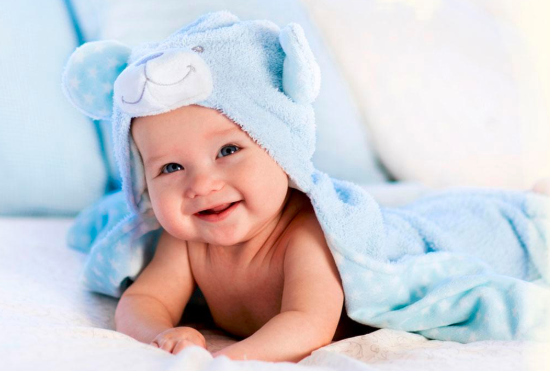A baby smiling is one of the first milestones. It shows signs of development in the baby and growth of self-awareness. When a baby starts smiling it shows emotional development and awareness about the surroundings. A baby is smiling as a fetus inside the womb as well. The very first time they smile it is not an emotional reaction but only a reflex or a response to movements. If you want to know when newborns start smiling, read this article that is full of interesting facts.
1. What the smile says about the baby
The baby starts smiling as an emotional response to something that it likes within 2 months of their birth. The baby could be smiling as an infant, but at that stage it is only reflexive and not a sign of emotional development. Over a period of 2 months, the brain develops to capture emotional and social responses. That is when you as a parent have reached a milestone when you see the baby smiling as a reaction to excitement, happiness, and contentment. This is the real smile that you can expect when the baby is 2 months old.

2. Ways to make your baby smile
When you notice real smile on the face of your baby, there are a lot of things you can do to make your baby smile. You can play along with the baby and let them discover new things in the environment. You can also play along with them to encourage them to smile more. You can play hide and seek with the baby, turn on the music, displays crafts and toys in front of the baby to help them develop multiple skills.
3. Schedule a play time during daytime
Spend a lot of time playing with the baby during the early stages of development. Play with them in the play gym with many toys and games. This will set a schedule and sharpen the observation skills of the baby. They learn better when you communicate and play with them. Make funny noises and smile at your baby to encourage emotional responses from them.

4. What if the baby does not smile
Even happy and content babies do not smile sometimes for at least a few weeks. There is nothing to be alarmed about it. It might not always indicate autism if your baby is not smiling within a few weeks but is responding and making eye contact. Babies have a personality that you can discover as they grow. A few babies might not have a smiling personality, so there is nothing to get alarmed. Your baby will start giving social and emotional smiles within 6 to 8 weeks.
5. A baby smiles for various reasons
When the stage of reflexes is passed, the real smile happens in response to emotions and the environment. A baby could be smiling when they are sleeping, peeing, or moving their legs. A smile during the early stages of development is a sign that the nervous system and vision are functioning normally. As the baby grows older than 6 weeks, it gets selective about who they smile at. This is the time when the mind of the baby observes and responds with a smile to separate known people and strangers. Smile back at your baby and encourage them to communicate more with you from this stage on.
6. Develop their self-esteem
This is an early stage of development where you can smile back at the baby, encourage them to smile more and develop their self-esteem. It is kind of assurance that you are giving your baby and letting them know that their feeling and emotions are reciprocated. It helps the baby relax and feel secure in the environment. The initial smiles of the baby are as quick as a blink and they are not aware that they are smiling. These are only reflexes. You can get more of real smiles and also get them to laugh when you spend more time with them playing games and talking to them.

7. The babies can laugh
Once the baby starts smiling, the second stage is laughter. There are cute and funny noises you can make to get the baby to laugh once they have grown beyond 6 weeks. This is the emotional response they give and is an indication that they are able to communicate their needs from this stage on.
This is a good article that you can read to know when newborns start smiling. And If you have any baby related queries then you can Visit Parentprime.com

